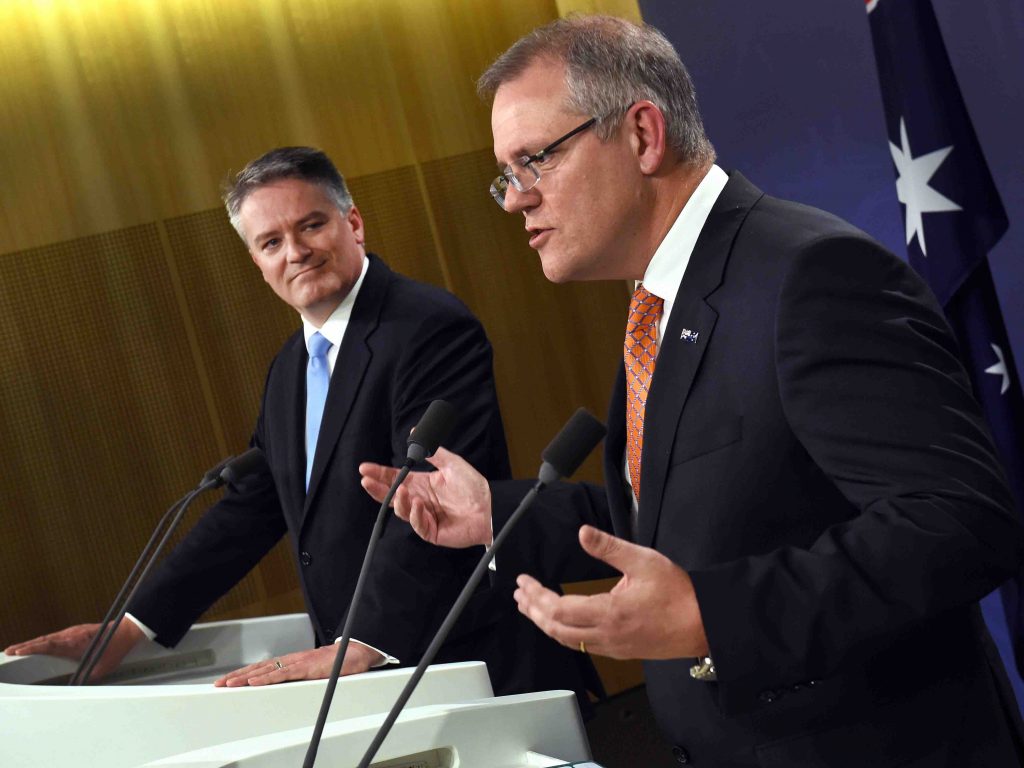What will Prime Minister Scott Morrison do with the Digital Transformation Agency, the forgotten child of the Commonwealth? The DTA has been many things to many people in the time since it was conceived in 2015, but overall it has been disappointing, as measured against its launch ambition.
Whatever its purpose is today – and this is not easily identified from the outside – it does not compare favourably to the goals that were set for it when it was established.
This is not a commentary on the people that work within the DTA. But it is clear that the government has not yet found a structural model that enables the vision to get close to the reality.

Which is obviously a shame because good digital policy has such an insanely great upside for citizens (better services), for taxpayers (lower costs) and for industry (access to data, access to government as a customer).
It is no wonder that the tech sector is hanging out to know who the new minister for digital transformation will be to replace the just-retired Michael Keenan – or even if ScoMo intends replacing him.
Arthur Sinodinos would be the best qualified contender for the role, and probably the only person in the senior coalition ranks who has a feel for both the tech and the administration. Michael Keenan really had neither.
There are a few things that we hope Scott Morrison will consider when putting his Cabinet together and looking for someone to spearhead digital.
The Digital Transformation Agency was established to deliver better, more convenient government services to citizens – services that were more in line with what people have come to expect in the private sector.
A by-product of this transformation was also supposed deliver cost savings.
By taking over the centralised role for ICT procurement, this transformation of government technology services was supposed to also deliver industry development benefits to Australian industry.
Literally, by reforming government procurement practices – as outlined in the Prime Minister and Cabinet ICT Procurement Review that followed the 2016 election – barriers to entry for smaller Australia technology companies were to be broken down.
Among a series of recommendations were measures that were supposed to break down the size and duration of ICT contracts. The aim was to break up the reliance on multinational systems integrators and give Australian SMEs a better chance of winning government business.
The review recommended that metrics be established to better understand how much government business was going to Australian tech companies.
In fact, the then assistant minister for digital transformation Angus Taylor said the government’s ambition to boost spending with Australian SME’s by 10 per cent of overall ICT spending would be twice as much as the government had spent on the National Innovation and Science Agenda.
Well that didn’t happen.
But these procurement goals have gone awry within the DTA. Unforgivably, one of the first major announcements of Michael Keenan after the procurement review was to sign a five-year, US$1 billion contract with IBM – precisely the opposite intent of the big brains who developed the procurement reform agenda.
When he wasn’t signing billion dollar contracts with IBM, Mr Keenan was signing partnership arrangements with Microsoft. What he did not do was drive improved outcomes for Australian companies.
What the DTA and the former minister did not do was apply metrics to procurement contracts and Australian technology companies.
It is not just that the Commonwealth’s $9 billion annual spend on ICT has enormous potential for industry development in technology. We should leverage that spending to build capability and to build our industry.
There is a sovereign capability issue here. Australia absolutely must develop its own capability across the broadest cross section of information industries. And government procurement is one lever to successfully achieve this.
Does anyone believe, for example, that Australia does not need a sovereign Artificial Intelligence capability, for example? And government procurement – together with government data – should play an enormous role in building that capability.
At a time when Australia’s most important strategic ally is in a full-blown trade war with Australia’s largest trading partner – and technological rivalry is at its centre – it is surely past time when we should be building our capability.
Which brings us back to the Digital Transformation Agency. It is hard to discern purpose. Its government ICT procurement responsibilities are not delivering for Australia.
Scott Morrison will in the coming days name his ministry. We hope he underlines the strategic importance of the government’s own digital delivery programs. Where the DTA ends up is anyone’s guess.
It has drifted badly under Michael Keenan, and started to look a lot like a failed experiment. It would be a mistake to return it to Finance, just as it would be a mistake to re-appoint Mathias Cormann to chair the Digital Transformation and Public Sector Modernisation Committee of Cabinet.
There is an insanely great upside to having a powerful, centralised Digital Transformation Agency that retains ICT procurement and whole-of-government technology project management. We are not there yet.
Hopefully the Messiah from the Shire can pull off another miracle.
Do you know more? Contact James Riley via Email.

